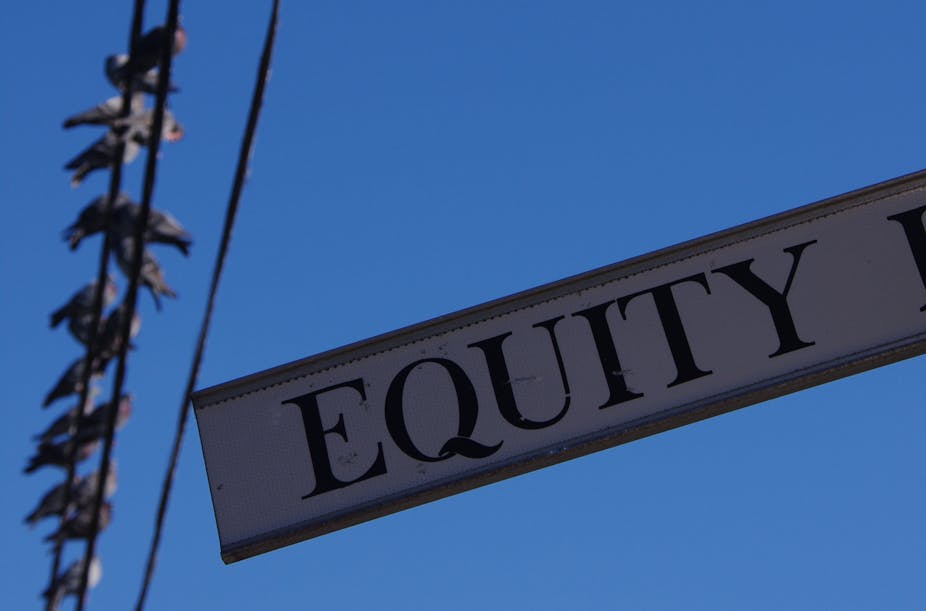Despite government claims that the budget would be fair and all Australians would contribute to the “budget rescue job”, reality has not supported these claims. And this is bad news for health and social equity.
Income equality translates to health equality; evidence consistently shows disadvantaged Australians face greater risk of poor health and chronic disease. Men in the lowest socioeconomic quarter, for instance, die prematurely between the ages of 15 and 64 years at approximately twice the rate of those in the highest socioeconomic group.
This budget will have a direct effect on health equity because none of the budget items relating to the social determinants of health – employment, income, health services, education, welfare, housing and transport – are being dealt with equitably.
Punishing the poor; rewarding the rich
The push to privatise government functions ignores evidence that it results in more expensive and less equitable services. So now the new Primary Health Networks will be encouraged to to “partner with private health insurance” (opening up primary health care to the private health insurance for the first time).
Universal provision of social, education and health services are good for equity; it sends the message that we are all in this together and avoids two-tier systems.
But this budget didn’t send that sort of message. For instance, it didn’t remove the fiscally irresponsible private health insurance rebate that now gives around A$5 billion of subsidies to the inefficient (compared to publicly-funded Medicare) private health insurance industry.
Rather, it introduced a $7 co-payment for the use of GP services and a $5 co-payment for medicines that were previously free because they were on the Pharmaceutical Benefits Scheme (PBS).
This will make little difference to people in the middle-income range and above, but will have a disproportionate impact on those who already have worse health – rural people, low-income people, those with mental illness, Aboriginal people, aged pensioners and single parents. They will have to defer health care until more expensive intervention is required.
Apart from the debt levy, which pays short-term lip service to equity, the impact of the budget is regressive and a series of missed opportunities to tax the better off. The paid parental scheme, for instance, reinforces existing inequities and benefits well-off mothers most.
A bleaker future
Education is good for equity yet the budget reduces the opportunities for the less well off to go to university. University fees have been deregulated so the top eight research-intensive universities will charge much higher fees and become the preserve of the upper middle class.
The budget does nothing to position our economy for a low-carbon future. Rather, it’s stuck in 1980s growth mentality and the empty mantra of economic growth at all costs. This benefits the rich end of town whose continued wealth requires new markets (hence the frenzy for privatisation). Poor people also have fewer resources to cope with climate change.
An equitable budget would have pulled out all stops to reduce carbon with measures to invest in public transport, promote renewable energy (such as ensuring solar energy is affordable for low-income people) and encourage community measures to transition to sustainable practices (such as a program of community gardens, for instance, and bike-friendly infrastructure).
Instead, this budget has done very little for reducing carbon apart from the petrol levy, and the Clean Technology Innovation Program has been axed.
While the petrol levy does tax carbon, this measure too will disadvantage low-income people living on the fringes of our cities and rural people because they are more dependent on cars. Investment in public transport would have been better for health equity than investment in building roads which is the main infrastructure spending in the budget.
Equity isn’t just a nice idea, it’s also how we create a better society. Countries that give people a fair go by distributing income relatively equitably do better on a range of measures of well-being including longer life expectancy, less mental health, less crime, better child welfare and more trust.
This budget has failed to deliver on almost all these grounds. Overall, it is storing up health problems for the future. And ten years from now, it will still be contributing to great differences in health between rich and poor Australians, and creating more social problems.

